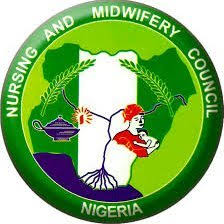Coordinating Minister of the Economy and Minister of Finance, Mr. Wale Edun, has said that economic reforms introduced under President Bola Tinubu’s administration are creating opportunities for sustainable health financing and improved access to healthcare in Nigeria.
Speaking at the National Health Financing Policy Dialogue in Abuja yesterday, Edun emphasised that preplanned and prepaid healthcare systems reduce the financial strain on households compared to the burden of out-of-pocket spending at the point of care.
He noted that reforms such as the removal of the fuel subsidy, elimination of monetary financing, fiscal consolidation, and improvements in tax administration have stabilised the economy, paving the way for investments in health, education, and social protection.
“The more hospitals, diagnostic and oncology centres we have in Nigeria, the less Nigerians will spend abroad,” Edun said. “We can even attract foreign patients, turning Nigeria into a regional hub for specialised healthcare services.”
The minister added that federal allocations to states have doubled, giving sub-national governments more resources to invest in critical sectors, while private sector investment and philanthropy remain vital for closing funding gaps. He also pointed to stronger external reserves, moderated inflation, and 3.4 per cent economic growth recorded last year as indicators that the economy is on a path to sustainable financing for jobs, poverty reduction, and social services.
Also addressing the dialogue, Senator Ipalibo Banigo, Chairperson of the Senate Committee on Health, reaffirmed the National Assembly’s commitment to strengthening legislation, technology adoption, and oversight for sustainable health financing.
She outlined a four-point agenda which includes enacting and strengthening health-related laws, promoting universal health coverage (UHC), mobilising resources through public systems and private partnerships, and improving public financial management to ensure accountability.
Banigo disclosed that, for the first time in 2024, funds were allocated to the Vulnerable Group Fund, which has provided free treatment and renewed health insurance coverage for over 6,000 Nigerians in vulnerable groups. She also revealed plans for a Catastrophic Health Fund to support patients suffering from high-burden illnesses such as cancer and liver failure.
With government reforms, parliamentary backing, and private sector engagement, stakeholders at the dialogue agreed that Nigeria has a unique opportunity to strengthen health financing and move closer to achieving universal health coverage.




